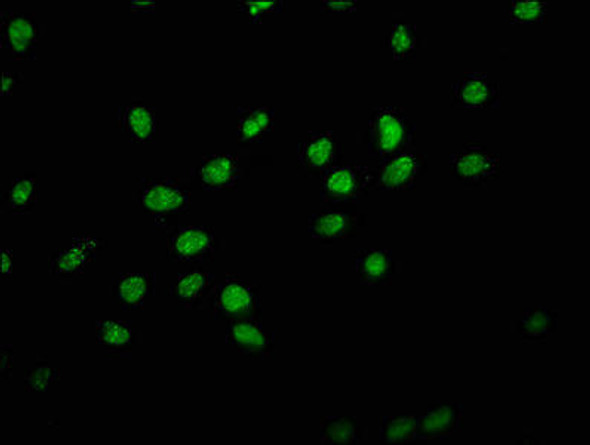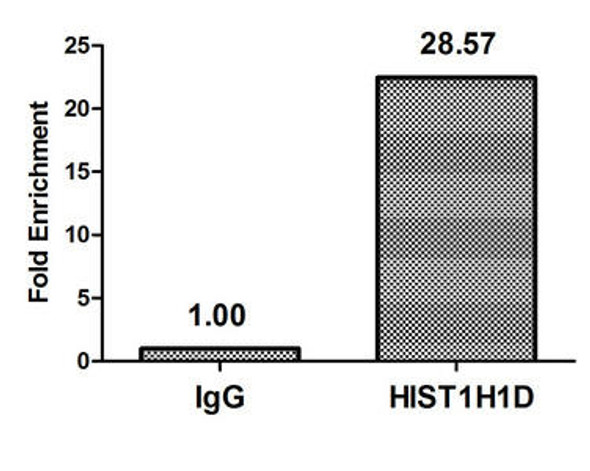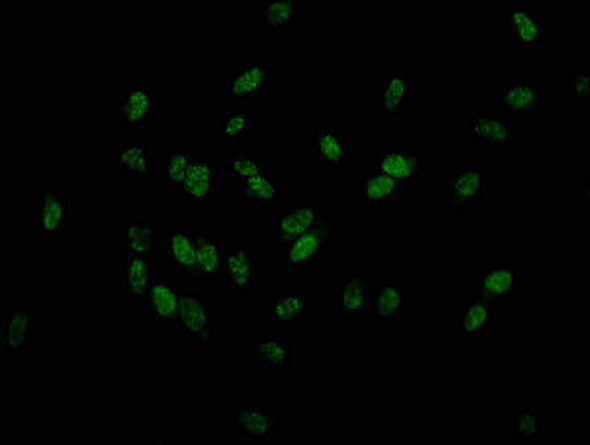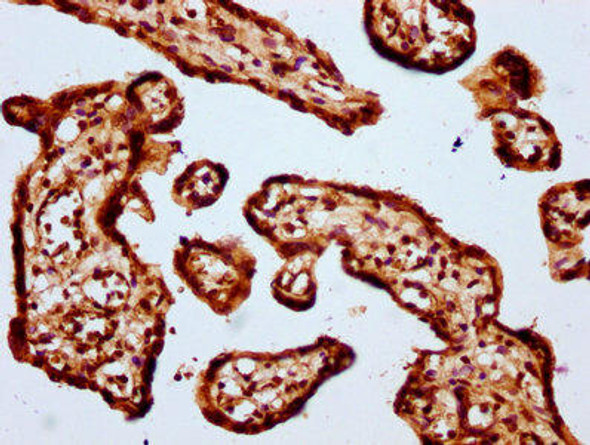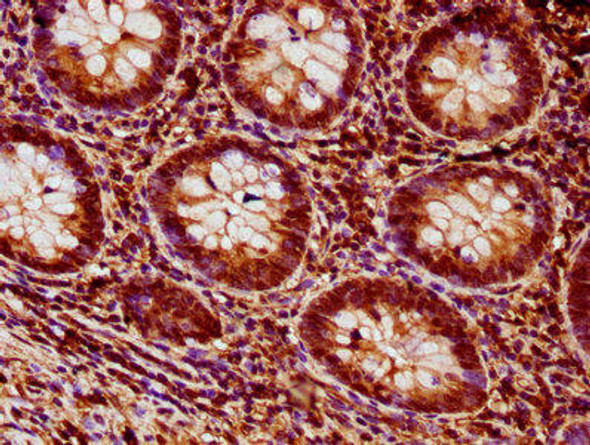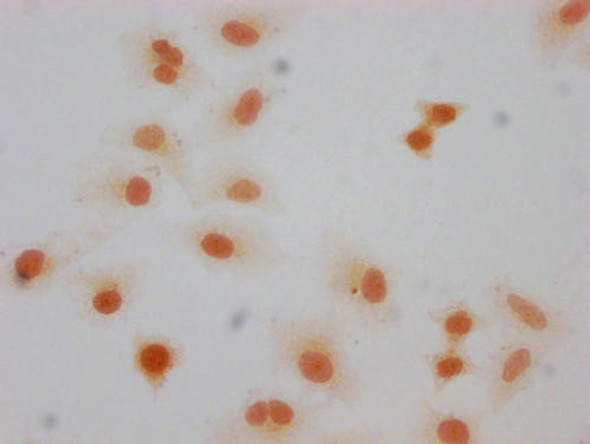Description
Formyl-HIST1H1D (K140) Antibody (PACO65094)
The Formyl-Hist1H1D K140 Antibody (PAC065094) is a crucial tool for researchers studying histone variants and their impact on gene regulation and chromatin structure. This polyclonal antibody, produced in rabbits, is highly specific to the Formyl-Hist1H1D K140 protein and has been validated for use in various applications including Western blot and immunofluorescence.Histones play a vital role in packaging and organizing DNA within the nucleus, and histone variants like Formyl-Hist1H1D K140 have been implicated in regulating gene expression and chromatin dynamics.
By targeting the Formyl-Hist1H1D K140 protein, researchers can investigate its role in various cellular processes, including transcriptional regulation, DNA repair, and development.This antibody is an essential tool for scientists studying epigenetic mechanisms, gene expression, and chromatin remodeling, offering valuable insights into the functional significance of Formyl-Hist1H1D K140 in health and disease. Its high specificity and sensitivity make it an ideal choice for research in molecular biology, cell biology, and cancer biology.
| Product Name: | Formyl-HIST1H1D (K140) Antibody |
| Product Code: | PACO65094 |
| Size: | 50µL |
| Target Names: | HIST1H1D |
| Species Reactivity: | Human |
| Host Species: | Rabbit |
| Antigen Species: | Human |
| Tested Applications: | ELISA, ICC; Recommended dilution: ICC:1:10-1:100 |
| Isotype: | IgG |
| Clone ID: | N/A |
| Conjugate: | Non-conjugated |
| Clonality: | Polyclonal |
| Antigen: | Synthesized peptide derived from Human Histone H1.3 protein (137-149aa) |
| Form: | Liquid |
| Buffer: | Preservative: 0.03% Proclin 300 Constituents: 50% Glycerol, 0.01M PBS, pH 7.4 |
| Purification Method: | Antigen Affinity Purified |
| Storage: | Upon receipt, store at -20°C or -80°C. Avoid repeated freeze. |
| Aliases: | Histone H1.3 (Histone H1c) (Histone H1s-2), HIST1H1D, H1F3 |
| Uniprot ID: | P16402 |
| Background: | Histone H1 protein binds to linker DNA between nucleosomes forming the macromolecular structure known as the chromatin fiber. Histones H1 are necessary for the condensation of nucleosome chains into higher-order structured fibers. Acts also as a regulator of individual gene transcription through chromatin remodeling, nucleosome spacing and DNA methylation (By similarity). |
| Research Area: | Epigenetics and Nuclear Signaling |



